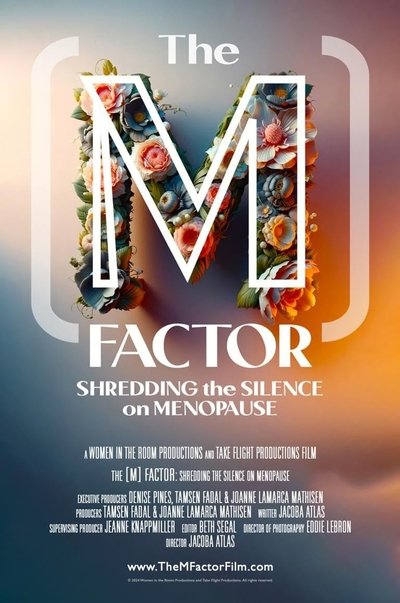The M Factor: Shredding the Silence on Menopause
Genres
Documentary
OverView
Menopause is a silent epidemic affecting the health and well-being of millions of women. This film confronts this neglected crisis, challenges societal and medical shortcomings and advocates for a revolutionary approach to women's health.
Others
Budget
$--
Revenue
$--
Status
Released
Original Language
English
Runtime
56 mins
Rating
7.9/10
Release Date
17 October 2024
Country
United States of America

